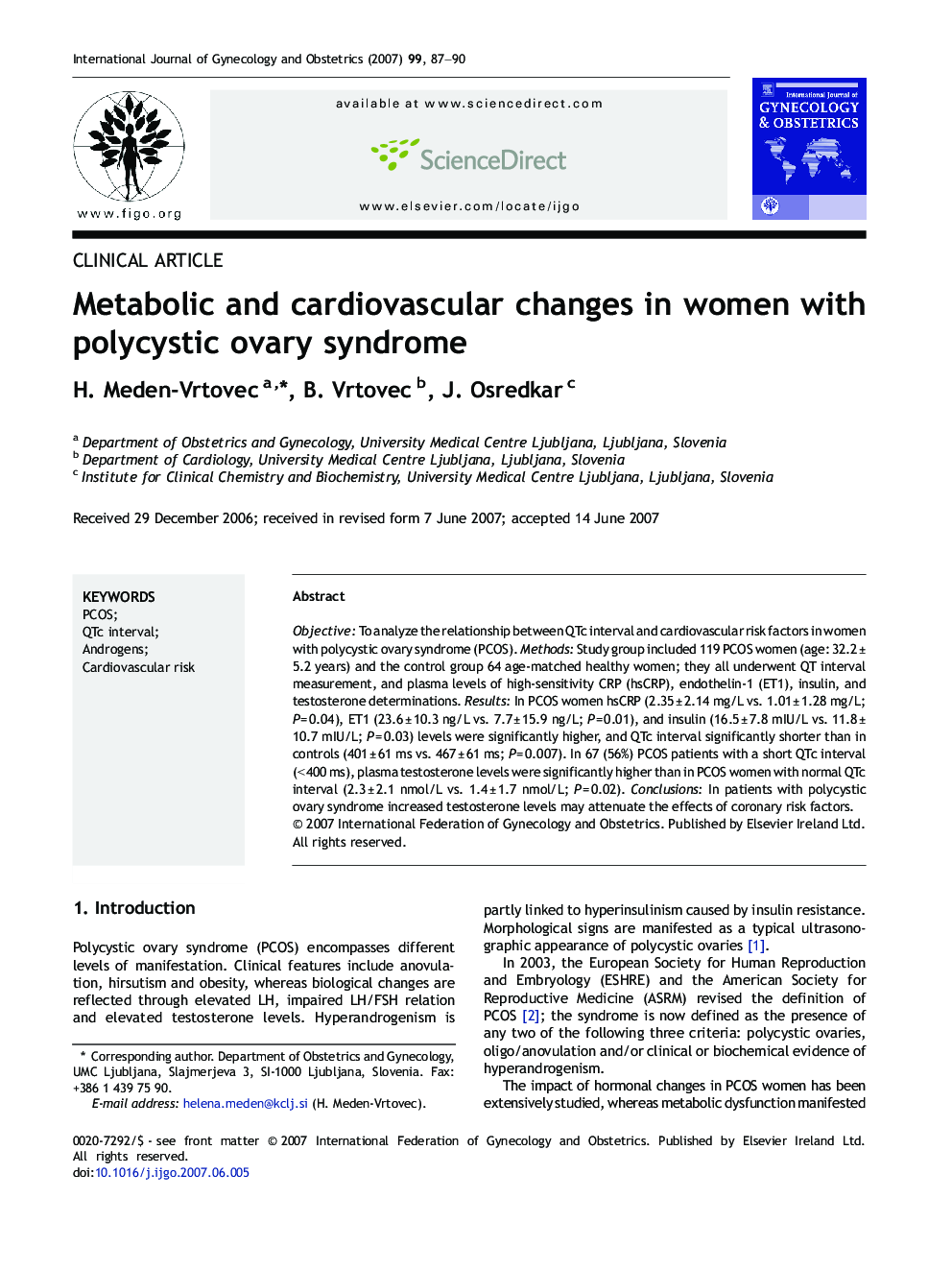| Article ID | Journal | Published Year | Pages | File Type |
|---|---|---|---|---|
| 3955338 | International Journal of Gynecology & Obstetrics | 2007 | 4 Pages |
ObjectiveTo analyze the relationship between QTc interval and cardiovascular risk factors in women with polycystic ovary syndrome (PCOS).MethodsStudy group included 119 PCOS women (age: 32.2 ±5.2 years) and the control group 64 age-matched healthy women; they all underwent QT interval measurement, and plasma levels of high-sensitivity CRP (hsCRP), endothelin-1 (ET1), insulin, and testosterone determinations.ResultsIn PCOS women hsCRP (2.35 ± 2.14 mg/L vs. 1.01 ± 1.28 mg/L; P = 0.04), ET1 (23.6 ± 10.3 ng/L vs. 7.7 ± 15.9 ng/L; P = 0.01), and insulin (16.5 ± 7.8 mIU/L vs. 11.8 ±10.7 mIU/L; P = 0.03) levels were significantly higher, and QTc interval significantly shorter than in controls (401 ± 61 ms vs. 467 ± 61 ms; P = 0.007). In 67 (56%) PCOS patients with a short QTc interval (< 400 ms), plasma testosterone levels were significantly higher than in PCOS women with normal QTc interval (2.3 ± 2.1 nmol/L vs. 1.4 ± 1.7 nmol/L; P = 0.02).ConclusionsIn patients with polycystic ovary syndrome increased testosterone levels may attenuate the effects of coronary risk factors.
